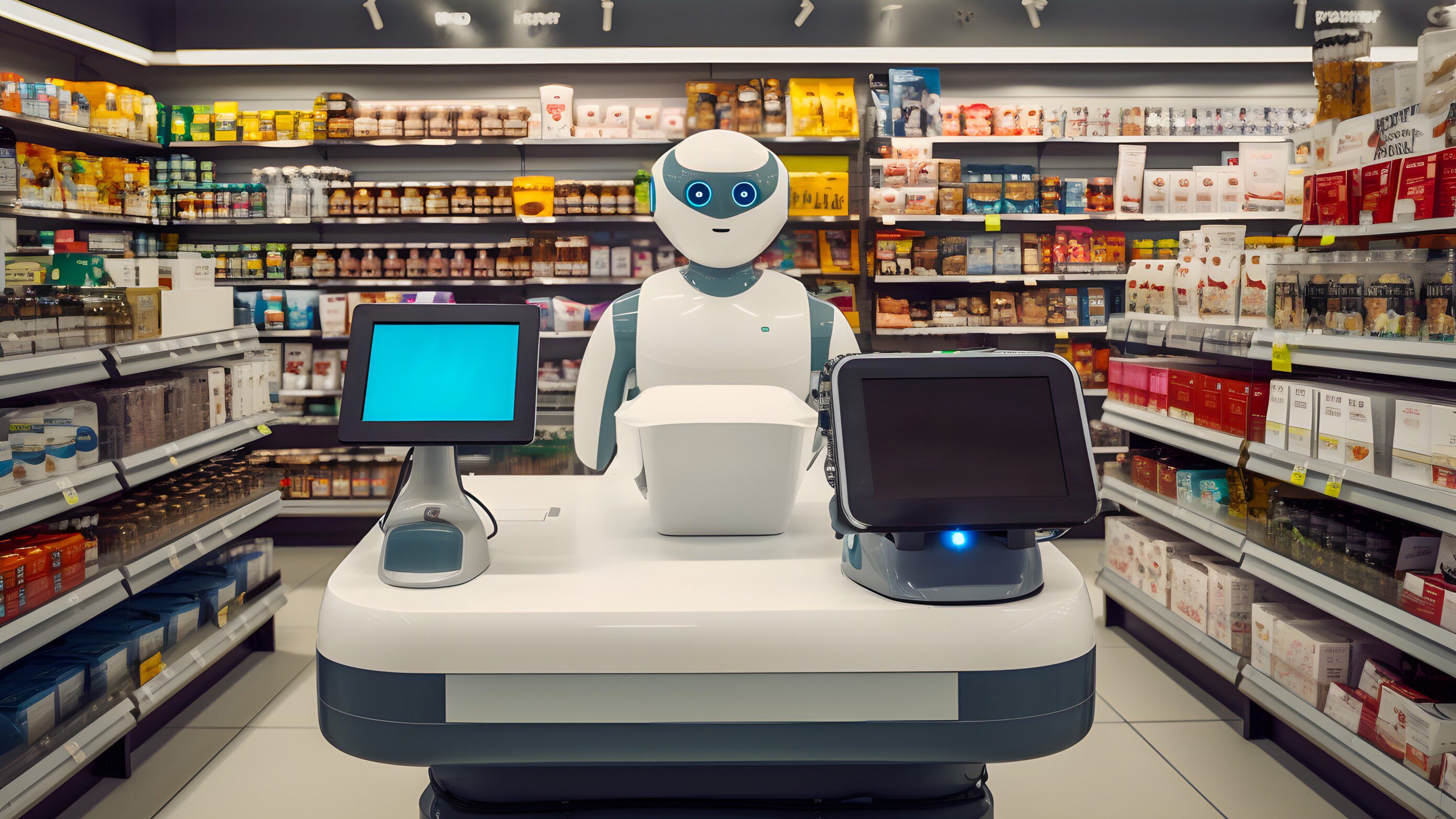In a rapidly evolving employment landscape, the trajectory of some occupations will change significantly. A glance into the next decade alone suggests that many jobs that have long been considered an essential part of the workforce may become obsolete. Let’s examine the dynamics of these positions and the factors that cause their potential obsolescence.
1. Cashiers in stores: the rise of automated POS systems
The once important role of cashiers in stores is slowly disappearing. With the current development of self-service checkouts and the exponential growth of online shopping platforms, consumers are increasingly embracing convenient self-service options. These innovations not only speed up the checkout process but also minimize the need for human intervention, reducing merchants’ operational costs. As a result, technology solutions may gradually replace the traditional role, prioritising efficiency and convenience.
2. Telemarketers.
The marketing landscape is undergoing a profound transformation, driven by technological advances and changing consumer preferences. In an era characterised by ad-blocking software and strict data protection regulations, traditional telemarketing approaches are losing their effectiveness. Consumers are becoming increasingly adept at detecting unwanted calls. Businesses are increasingly turning to digital marketing channels to reach their target audience.
Automated marketing platforms using data analytics and artificial intelligence offer unparalleled accuracy and efficiency in reaching potential customers.
As a result, the demand for human telemarketers is expected to decline. This will pave the way for automated marketing solutions that can deliver personalised, targeted messages at scale.
3. Data entry staff: automation redefines data management processes
Data entry work is also undergoing a massive shift thanks to automation technologies. Optical character recognition (OCR) software and data extraction algorithms have revolutionized the way data is processed and entered. This has significantly reduced the need for human data entry staff. These technologies quickly and accurately digitise information from a variety of sources, eliminating the risk of human error inherent in manual data entry processes. As businesses increasingly prioritise efficiency and accuracy in data management, the demand for human data entry staff is expected to decrease. This will make way for automated solutions that streamline workflows.
4. Taxi drivers: Autonomous transport
The rise of autonomous transport technologies is transforming the traditional role of the taxi driver. With companies investing heavily in the development of self-driving vehicles and ridesharing platforms using algorithmic dispatching systems, the urban transportation landscape is undergoing a major change. Autonomous vehicles promise greater safety, efficiency and cost-effectiveness compared to their human-controlled counterparts. As self-driving technology continues to mature and gain widespread acceptance, the demand for human taxi drivers may decline, marking a fundamental shift towards a future dominated by autonomous transport solutions.
5. Journalists in print newspapers: adapting to the world of digital media
The traditional print newspaper industry is grappling with existential challenges amid the rise of digital media platforms and changing consumer preferences. With the declining demand for print newspapers and the growing popularity of online newspapers, the role of print journalists is undergoing a profound rethink. Many newspapers are moving towards digital formats, favouring multimedia storytelling and interactive content. In doing so, they engage audiences in an increasingly digital-centric environment.As a result, the demand for journalists who are proficient in print-oriented reporting may decrease. A new group of multimedia journalists will emerge who can navigate the complexities of digital media platforms.
6. Bank tellers.
The role of bank tellers is slowly becoming more and more redundant. This is due to the evolution of banking practices and consumer behaviour. With the widespread adoption of online banking services, mobile payment solutions and automated banking kiosks, traditional branch transactions are becoming increasingly digital. Customers now have access to a myriad of self-service options, from mobile check deposits to virtual customer service representatives. This reduces their reliance on human bank tellers for routine transactions.As banks adopt digital transformation initiatives to streamline operations and improve the customer experience, the demand for human tellers may decrease. This development signals a key moment in the evolution of banking services.
Atena: we empower your future career
At Atena, we recognise the importance of adapting to the evolving labour market and preparing for future success. With relentless determination, we want to understand your unique skills, aspirations and the emerging trends that are shaping tomorrow’s workforce. We’re committed to enabling you to thrive in a rapidly changing employment environment. Our personalized approach to recruiting ensures that we connect you with opportunities that not only match your talents, but also hold the promise of long-term growth and sustainability. Partner with Atena and embark on a transformational journey towards a rewarding and promising career.







